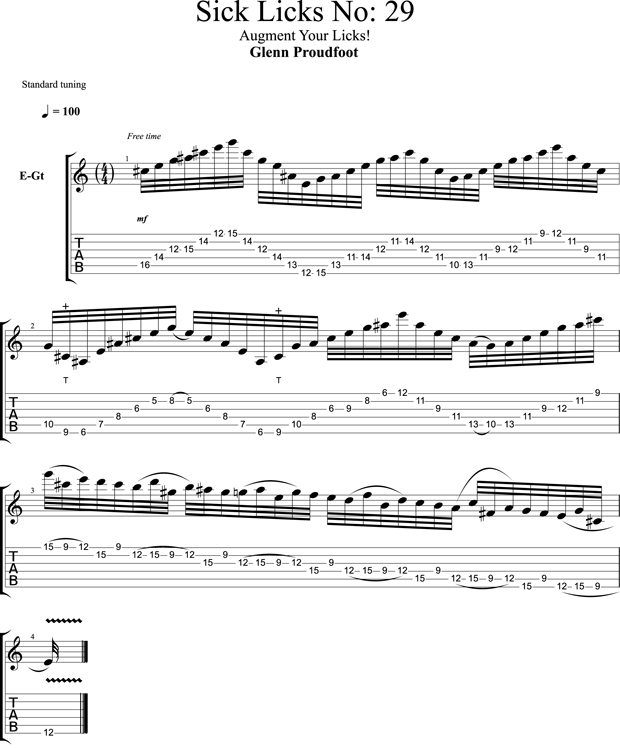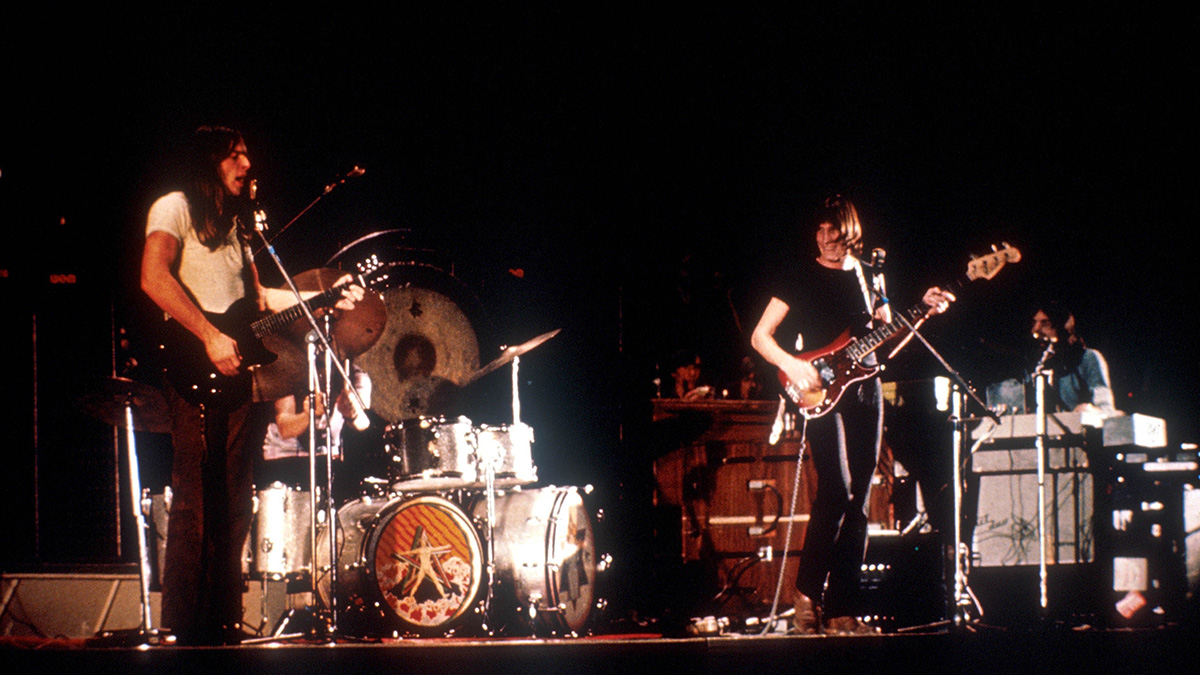Sick Licks: Shredding-Good Fun With the Diminished 7th Scale

In this Sick Lick, I'm using the diminished 7th scale along with an augmented-type scale.
The diminished 7th scale is a great way to maneuver around the the guitar, especially when you adapt three string arpeggios. The shapes you can create have a fantastic flow and make it easy to move up and down the neck freely.
The diminished 7th scale works perfectly with all variations of the pentatonic scale; this is why I naturally gravitate toward it when soloing. As my playing is always based on the pentatonic, I look for ways to embellish the sound while not loosing the focus or tonal core of what I'm doing.
When you break down the diminished 7th scale (In this case, we are in the key of E), you have the following notes: E, G, Bb, C#. The first two notes are the root being E, and the minor 3rd being the G. The next two notes are the Bb, which is the flat 5 in the E pentatonic blues scale and then the C#, which is the major 6th in the E pentatonic scale.
All these notes are commonly used in rock soloing. This is why the diminished 7th scale works so well with the pentatonic.
You don’t have to be a theoretical genius to work out things like this. I'm not! All of this was done by listening to players like Shawn Lane, Stevie Ray Vaughan, Eric Johnson, etc. These discoveries, for me, came over time. The more my playing developed, the more I naturally found myself branching out tonally.
It's a natural progression, so don't ever freak out about the theory behind ideas. Just understand them with your ear and develop the ideas over time.
Get The Pick Newsletter
All the latest guitar news, interviews, lessons, reviews, deals and more, direct to your inbox!
The last section of this lick is what I call the augmented-type scale. The inspiration for this comes from Shawn Lane’s approach to creating an "outside sound." What Shawn would do is base a lick around finger shapes with wide intervals. This is a very interesting approach; it's kind of like a jazz guitarist's approach to chromatic runs.
But Shawn would do this with wide intervalic runs and simply play the same pattern in the same fret position and move up or down the neck. Although it sounds easy, it does require some thought, and like a jazz guitarist will do, you must start in the tonal center and finish in the tonal center in order to pull it off.
As you will notice, the last lick starts on the 15th fret of the high E using the diminished 7th scale. From there I simply repeat the same pattern in the same fret positions on all of the strings until I am finally at the Low E string.
As you can see, I start on the high E using the diminished 7th and finish on the low E with the diminished 7th.
One major factor in playing like this, unfortunately, is speed, because it totally sucks when played slow. You must work up some serious speed in order for it to work! But this is fun anyway. Just set your metronome and challenge yourself and see how fast you can get the lick!
I hope you enjoy! Please join me on YouTube here.

Australia's Glenn Proudfoot has played and toured with major signed bands and artists in Europe and Australia, including progressive rockers Prazsky Vyber. Glenn released his first instrumental solo album, Lick Em, in 2010. It is available on iTunes and at glennproudfoot.com. Glenn was featured in the October 2010 issue of Guitar World and now creates "Betcha Can’t Play This" segments and lessons for GW. Glenn also has a monthly GW column, "Loud & Proud," which offers insight into his style and approach to the guitar. Glenn is working on a project with Ezekiel Ox (ex Mammal) and Lucius Borich (Cog), which is managed by Ted Gardner, ex-Tool and Jane's Addiction manager. The band has done pre-production on 22 tracks and is set to hit the studio and finish their first studio album. The album is set for release in 2012. Glenn also is working on the followup to his debut album; it, too, will be released in 2012.









